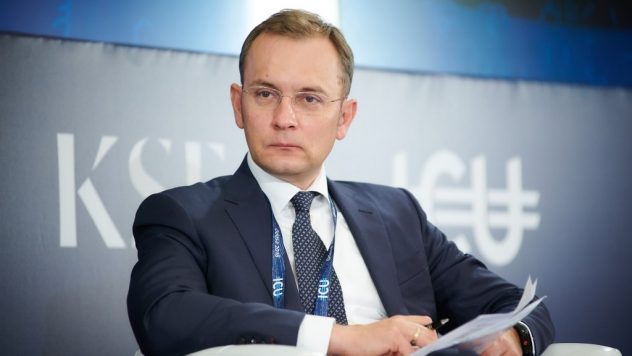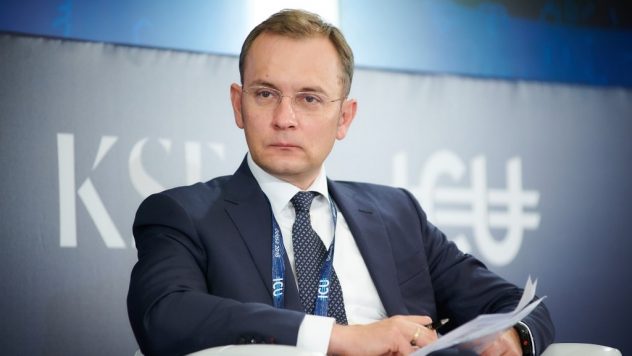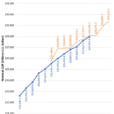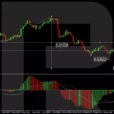With the global death toll from the coronavirus set to surpass 500,000, the world is grappling with the tough dilemma between easing lockdown measures too quickly to kick start the global economic engine or facing a second wave of the pandemic.
The IMF has forecast a 8.0% fall in the GDP of advanced economies in 2020 and world trade is expected to contract by 11.9%. The IMF has forecast an even steeper 8.2% decline for Ukraine, which has imposed one the strict lockdown measures. We speak to Makar Paseniuk, founding partner of ICU, the independent asset management firm specialising Central and Eastern Europe to hear his views on the impact of COVID-19 and why economic pain globally and in Ukraine could persist even after the pandemic is contained.
 What do you think of the pandemic and its effect on the global economy?
What do you think of the pandemic and its effect on the global economy?
MP: This crisis is unprecedented and the economic effects will be felt for a long time. We think the world economy post lockdown will be high uncertain because of a possible second wave of the pandemic. There is also much about the virus we do not know: reinfection patterns, the possibility of a vaccine, the safest reopening rules. Consumer and investment confidence will remain fragile.
We believe GDP recovery will be slow and uneven across the globe. We expect the recovery in most countries will take the “Nike swoosh” shape, and in some cases will be protracted.
According to our forecast, the EU, Ukraine’s key trade partner, will experience the sharpest drop (-7%) among Advanced Economies (AE), and its pre-COVID-19 GDP levels are expected to return no sooner than in 2023. At the same time, CEE countries, particularly Poland, will recover at a faster pace.
Do you think the Central Banks have done enough to help the economy? And what other measures can they adopt to restart the economy?
MP: Central banks in advanced economies have reacted swiftly and forcefully to the COVID-19 pandemic. They deployed the full range of crisis tools within weeks. The initial response focused primarily on easing financial stress and ensuring a smooth flow of credit to the private non-financial sector. As key policy rates in advanced economies do not have much wiggle room to be cut, central banks will engage in more asset purchases and other alternative tools. At the same time, the central banks of emerging market economies will keep lowering rates and apply QE where possible.
Do you see inflation rising as a result?
MP: Due to the recession and depressed demand, inflation in advanced economies is likely to stay low (0.5–0.6%) in 2020 and recover to subdued levels (1.6–1.8%) in 2021. Risks are to the upside stemming from a possible fast recovery, lack of fiscal restraint, and higher oil prices. These risks are marginal in 2020, but will grow into 2021. We expect inflation in emerging market (EM) economies to recover after 2Q–3Q 2020 lows to near pre-COVID-19 levels (3.5–4%) in 2021.
And how about the situation in Ukraine? How do you think Ukraine has handled it so far?
MP: The government’s response was rapid and tough. In mid-March, bans or severe restrictions were put on international travel with some exceptions for the return of Ukrainian citizens, trade in non-essential goods, public transport in cities and intercity, and cultural, sports, as well as the work of the HORECA sector except for delivery services and the like. The severity of Ukraine’s measures to counter the spread of the coronavirus was the greatest in the CEE region. To a large extent, the authorities’ reaction was a recognition of the limited ability of the medical system to cope with a significant number of patients with the coronavirus.
How would you compare the response to other CEE nations?
MP: Due to such actions, the spread of the coronavirus in Ukraine has been quite limited, in contrast to, for example, Belarus and Russia, where the reaction of the authorities was weak or delayed.
What measures has Ukraine implemented to open the economy?
MP: In late April, the government published a five-stage quarantine plan, which it began implementing on May 11 as they were aware of the negative impact the implemented measures would have on economic activity, and limits to the effectiveness of compensatory stimulus, as well as the containment of the spread of coronavirus in Ukraine. Similarly, in recent weeks, the government has accelerated the opening of the economy and moved to adaptive quarantine following the example of other CEE countries.
Do you think all the restrictions will be lifted?
MP: We believe restrictions will still remain for international travel and large gatherings such as for cultural and sporting events during 3Q20. Meanwhile, the norms of social distancing and preventive measures, such as masks and disinfectants, will remain in place.
How will this affect the current budget of Ukraine and what has the National Bank of Ukraine (NBU) done to deal with it?
MP: Due to the COVID-19 pandemic, the government had to revise budget figures, which were approved by Parliament in the mid-April. The budget deficit was increased to 7.5% of GDP. As the first reaction to the lockdown, in April, state budget revenues fell 13% YoY despite the NBU transferring its 2019 profit to the budget in full at the beginning of the month. The biggest impact on revenues came from tax payments. The drop in VAT due to plummeting imports took the heaviest toll. Overall in 4M20, budget revenues underperformed by 14% compared with the budget plan for this part of the year, mostly affected by lower-than-forecast import volumes and the hryvnia exchange rate.
There have been changes to the government this year. Can you tell us a bit about the economic policies implemented by the new government?
MP: The economic policy of the new government is more focused on initiatives to support domestic producers in contrast to the previous government’s preference to implementing market-friendly reforms.
In its economic programme, the new government places great emphasis on creating preferences for domestic goods and services compared with foreign counterparts—in particular through the public procurement system and trade policy. It also emphasizes programmes to stimulate lending to SMEs (small and medium enterprises), infrastructure projects, and other incentives for domestic producers. In our opinion, most of these measures will have a rather limited medium and long-term effect on economic growth.
However, such a change in the paradigm has allowed the authorities to ensure that the critical banking law was voted on in parliament. That made it impossible to return insolvent banks to their former owners through the courts, and it was the final step for a new agreement with the IMF. At the same time, the format of Ukraine’s cooperation with the IMF has changed.
How has the IMF programme changed?
MP: It changed from an Extended Fund Facility to a Stand-By Arrangement—which is shorter, easier to implement, and less focused on structural reforms conducive to economic growth. The transition to a shorter programme with weaker conditionality is fully justified by the development of the global pandemic crisis and lockdowns with their associated uncertainty. However, there is a concern that a departure from the EFF with a stronger focus on structural reforms may be further evidence of a slowdown or suspension of economic growth-friendly reforms.
Is that a big concern?
MP: Overall, we believe the new agreement allows for macroeconomic stability in the face of the crisis and the need to finance an expanded budget deficit. Ukraine received the first tranche of US$2.1bn out of US$5bn under the new programme. But taking Ukraine’s history of cooperation with the IMF into account, we expect the country will receive the next tranche only next year.
About Makar Paseniuk
Makar Paseniuk is one of the leading investment managers and corporate advisers in Central and Eastern Europe with a career spanning more than twenty years’ in corporate finance in both local and international markets. As one of the founders of ICU, Makar has led the development of a leading independent asset management, corporate advisory and private equity franchise in Ukraine. He has been a key figure in building a US$500m asset management business and completing US$5.5 billion worth of M&A, equity and debt capital markets and debt restructuring transactions.
Before joining ICU in 2009, Makar spent over a decade at ING Bank’s franchises in Ukraine and the United Kingdom, rising from equity analyst to Head of Securities Services to Managing Director and Head of Corporate Finance.











Leave A Comment